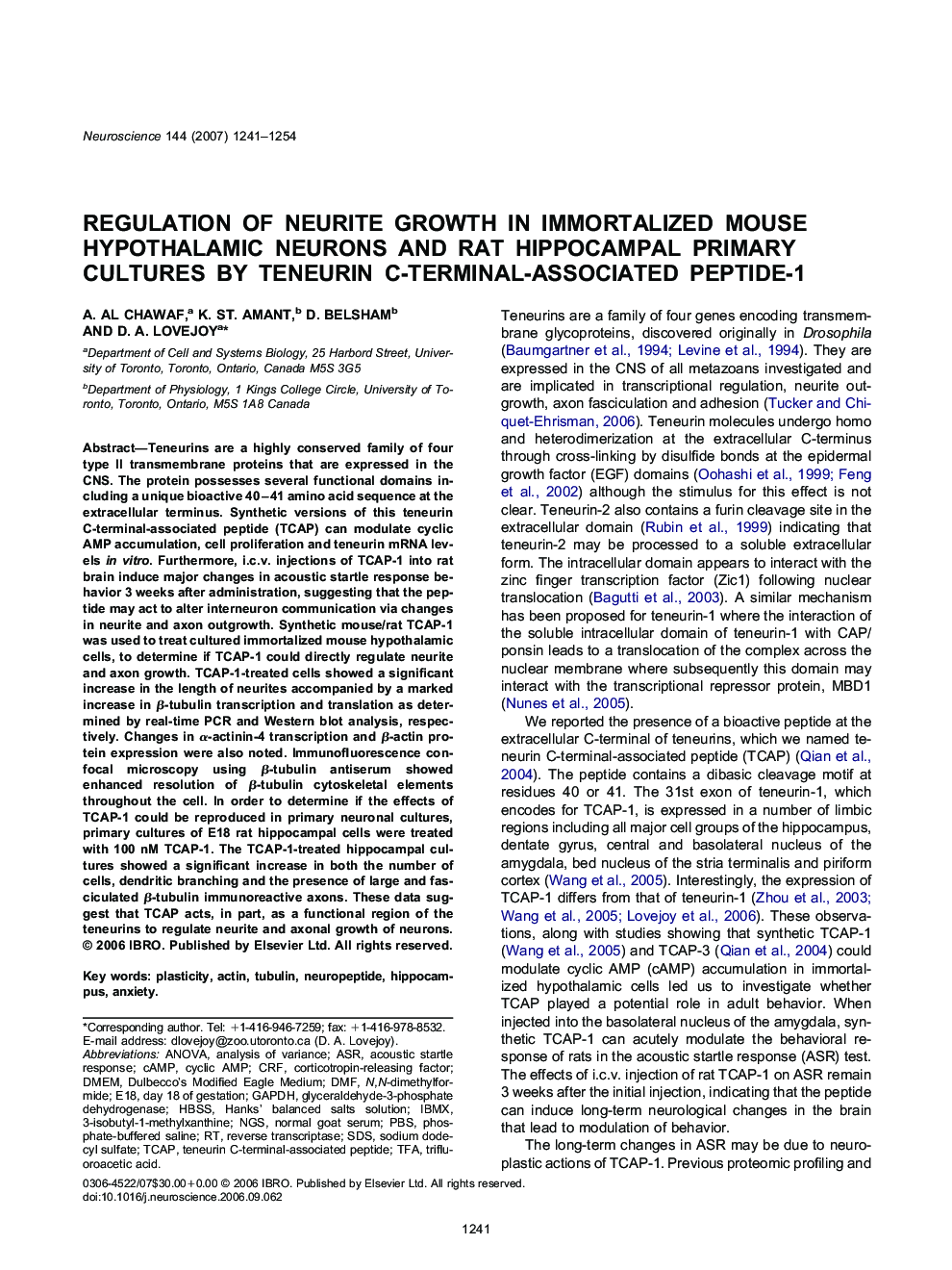| Article ID | Journal | Published Year | Pages | File Type |
|---|---|---|---|---|
| 4341225 | Neuroscience | 2007 | 14 Pages |
Teneurins are a highly conserved family of four type II transmembrane proteins that are expressed in the CNS. The protein possesses several functional domains including a unique bioactive 40–41 amino acid sequence at the extracellular terminus. Synthetic versions of this teneurin C-terminal-associated peptide (TCAP) can modulate cyclic AMP accumulation, cell proliferation and teneurin mRNA levels in vitro. Furthermore, i.c.v. injections of TCAP-1 into rat brain induce major changes in acoustic startle response behavior 3 weeks after administration, suggesting that the peptide may act to alter interneuron communication via changes in neurite and axon outgrowth. Synthetic mouse/rat TCAP-1 was used to treat cultured immortalized mouse hypothalamic cells, to determine if TCAP-1 could directly regulate neurite and axon growth. TCAP-1-treated cells showed a significant increase in the length of neurites accompanied by a marked increase in β-tubulin transcription and translation as determined by real-time PCR and Western blot analysis, respectively. Changes in α-actinin-4 transcription and β-actin protein expression were also noted. Immunofluorescence confocal microscopy using β-tubulin antiserum showed enhanced resolution of β-tubulin cytoskeletal elements throughout the cell. In order to determine if the effects of TCAP-1 could be reproduced in primary neuronal cultures, primary cultures of E18 rat hippocampal cells were treated with 100 nM TCAP-1. The TCAP-1-treated hippocampal cultures showed a significant increase in both the number of cells, dendritic branching and the presence of large and fasciculated β-tubulin immunoreactive axons. These data suggest that TCAP acts, in part, as a functional region of the teneurins to regulate neurite and axonal growth of neurons.
